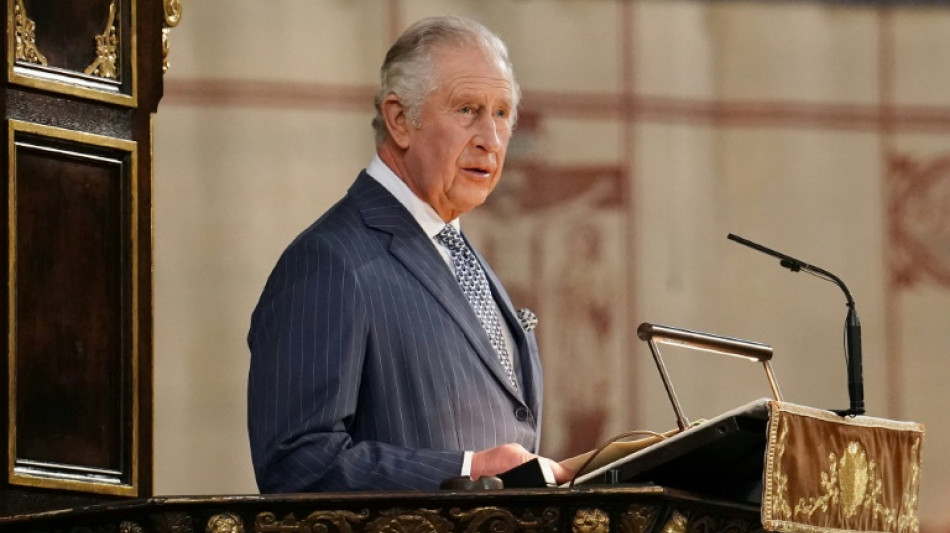
King Charles III calls for Commonwealth unity

Charles III on Monday attended his first Commonwealth Day service as king, issuing a call for unity to tackle the globe's most pressing issues.
The 74-year-old monarch heads the 56-nation grouping, which accounts for 2.6 billion people or approximately one third of the world's population.
He led senior royals and representatives from member states at the annual celebration of the institution at Westminster Abbey in central London.
The Commonwealth, which includes tiny Pacific island nations and major global economies such as Canada and Australia, was a "force for good", Charles said.
"Whether on climate change and biodiversity loss, youth opportunity and education, global health, or economic co-operation, the Commonwealth can play an indispensable role in the most pressing issues of our time," he added from the pulpit.
"Ours is an association not just of shared values but of common purpose and joint action."
Charles took over as head of the Commonwealth, many of whose members are former British colonies, after the death of his mother, Queen Elizabeth II, last September.
But he has represented the late monarch at previous Commonwealth Heads of Government meetings since old age forced her to stop foreign travel.
He said he had been inspired by her example, and was inspired by the institution's "near-boundless potential as a force for good in the world" as well as its member countries' young demographics.
- Republicanism -
Since coming to the throne, Charles, who will be officially crowned in May, has sought to put the Commonwealth at the heart of his reign.
Before his mother's funeral, he hosted Commonwealth and world leaders at Buckingham Palace.
There were also private audiences for the 14 Commonwealth realms outside the UK where Charles is also sovereign, including Australia and New Zealand.
He also hosted member state South Africa's President Cyril Ramaphosa for the first state visit of his tenure.
The diplomacy, however, comes as he faces the tricky task of keeping the self-styled Commonwealth family together.
There have long been questions about whether he can inspire the same respect and devotion as his mother, and increasing republican headwinds.
Charles's eldest son and heir Prince William got a taste of the push to break free from the monarchy last year on a visit to the Caribbean.
Protests in Jamaica and The Bahamas came after another Commonwealth member, Barbados, ditched the queen as head of state to become a republic in 2021.
Australia, where a sizeable proportion of the population want to become a republic, is expected to head in the same direction.
Charles has indicated he will not stand in the way of countries that want to do the same.
In London on Monday, there were renewed protests from republicans in the UK opposed to the hereditary principle of monarchy.
A handful of demonstrators carried placards saying "not my king", echoing similar protests at royal engagements in recent months.
L.Barone--PV
